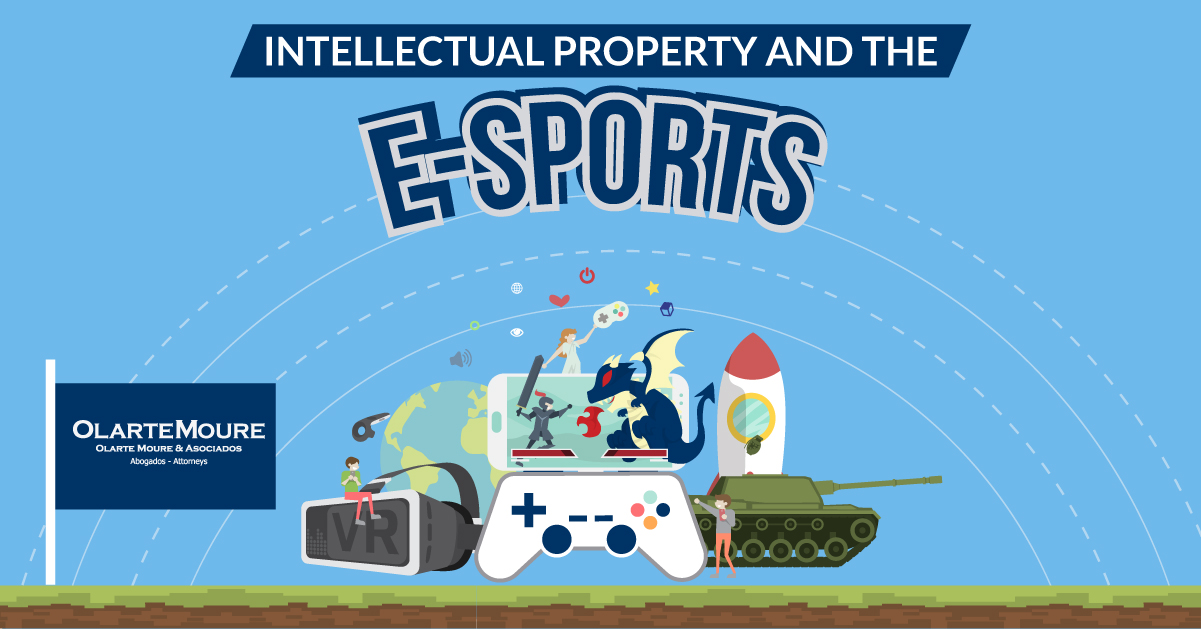E-sports (electronic or cyber sports) are multiplayer video game sport competitions in which usually, professional players participate. Depending on the game, they participate individually or in teams.
Most famous franchises:
- League of Legends
- Dota
- Counter-Strike
- Overwatch
- Street Fighter
- StarCraft
How does videogame protection operate?
Different intellectual property protection schemes are applicable to video games.
Copyright
Videogames are complex audiovisual works. Thus, its elements must be protected separately: the story, characters (in some cases), drawings or sketches of the locations where the videogame take place, animation, music, scripts, source code.
Image rights
To use the name and image of any real person—famous or not—in a video game, you must have its owners’ release.
Trademarks
Videogames’ names can be registered for their commercialization.
Trade secrets
Business models or special non-patentable technologies developed by each video game manufacturer are protected as trade secrets. In addition, the databases and information that developers collect from their players are also confidential pieces of information and are protected as trade secrets.
Patents
A videogame per se is not patentable. However, they can use patented technology to make improvements in the videogame (e.g., the development of a mechanism to improve graphics or lighting and/or shading in videogames).
Challenges of the videogame industry
The videogame industry faces several challenges, among these, competing with other forms of entertainment such as movies, sports and music, which have, as a general rule, a much more standardized market behavior; whereas the development and positioning of a videogame is subject to technological advances and the fact that in each territory there is specific legislation on fundamental issues for the development of this industry.
As it happens in:
Personal data protection
Behavioral patterns, personality and/or character profiles of players, location data and personal data of minors as competitors.
Regulation and/or content prohibition
Japan has a strong anti-gambling regulation, which has slowed down the development of the e-sports industry.
New monetization models and scenarios







